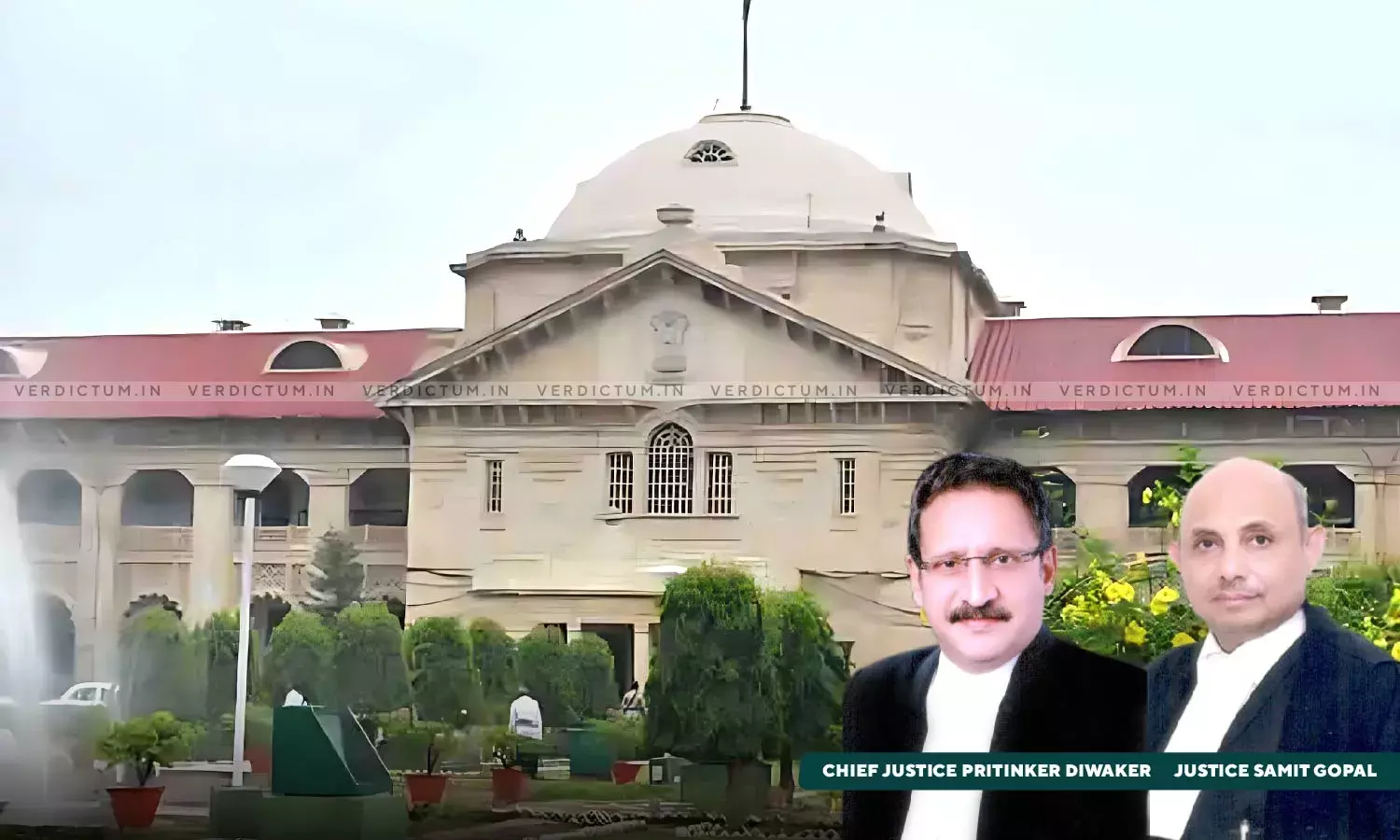Juvenile Can Seek Anticipatory Bail U/s. 438 CrPC, Inquiry U/s. 14 & 15 Of Juvenile Act Can Be Done While He Is On Bail- Allahabad HC

An Allahabad High Court Bench of Chief Justice Pritinker Diwaker and Justice Samit Gopal has held that juveniles can seek bail under Section 438 of the CrPC, and that the inquiry under Sections 14 and 15 of the Juvenile Justice Act can be made while the juvenile is on bail.
In that context, it was held that "a “child” or a “child in conflict with law” as per the Act 2015 can file an application for anticipatory bail under Section 438 of the Criminal Procedure Code, 1973 and the same would be maintainable. Since there is no bar under Section 438 Cr.P.C. restricting its application in so far a child in conflict with law is concerned, the same would be fully applicable. Further, since there is no bar for its applicability therein, the same would thus be applicable for a child in conflict with law as he cannot be left remedy-less till the time of his apprehension by the concerned authority or arrest whatever the case may be. The Legislature has not barred the application of Section 438 Cr.P.C. while legislating the Act 2015. Even the fundamental right of a child in conflict with law would get infringed if he is not given equal treatment in so far as the right for anticipatory bail is concerned. The same would apply to him subject to inbuilt restrictions in Section 438 Cr.P.C."
Counsel Brij Raj Singh, among others, appeared for the applicants.
In this case, the applicants had filed before the Single Judges applications for anticipatory bail through their natural guardians in respective cases in which they were accused. The issue before the bench was whether a child in conflict with the law would be entitled to file an application for anticipatory bail under Section 438 of the CrPC or not.
On hearing the parties, the Court made the observation that a child in conflict with the law cannot be left to be remedy-less until the time of his apprehension or arrest by the concerned authority.
In light of the same, it was observed that "In so far as in a stage prior to the apprehension or arrest by a child in conflict with law is concerned, the Act is silent. The Parliament has not overridden the provision of Section 438 Cr.P.C. There is no provision in Section 1 and Section 4 or elsewhere in the Act 2015 making Section 438 Cr.P.C. inapplicable for offences punishable under the Act 2015. The liberty of a citizen has to be regulated by law. It has to be procedural, substantial, just and reasonable under Article 21 of the Constitution of India. There is no bar for grant of anticipatory bail to a child in conflict with law or a juvenile, although Section 1(4) of the Act 2015 begins with a non-obstante clause which operates in relation to Code of Criminal Procedure, but the same does not, in any manner, is inconsistent with regard to the provisions of anticipatory bail under Section 438 Cr.P.C. for a juvenile or a child in conflict with law although it is a discretion of the court concerned either to grant anticipatory bail or not, but the remedy of an anticipatory bail cannot be taken away for a juvenile or a child in conflict with law, if there is no specific bar to it. The Legislature has not expressly barred the application under Section 438 Cr.P.C. with regard to a juvenile or a child in conflict with law. If the Legislature had an intention to override the provision of Section 438 Cr.P.C. then the same should have been expressly stated that Section 438 Cr.P.C. shall not apply to a juvenile or a child in conflict with law. There is, however, no such provision in the Code".
As a result of the mentioned circumstances, the Court was of the considered view that the Legislature had left it to the Court to bring about a harmonious construction of the two statutes, so that the two may work and stand together. Further, the Court also observed that a child should enjoy equal rights with other periods, and therefore, it would be in violation of all the principles and provisions to deny an opportunity to exercise right of preferring an application under Section 438 Cr.P.C.
Relying on judicial precedents, including the one set in the case of Gurbaksh Singh Sibbia v. The State of Punjab, the Court stressed that life and liberty are the cherished attributes of every individual.
In light of the same, the Court observed that as denial of bail amounts to deprivation of personal liberty, the Court should lean against the imposition of unnecessary restrictions on the scope of Section 438 Cr.P.C., especially when not imposed by the Legislature.
Cause Title: Mohammad Zaid v. State of U.P. and Another
Click here to read/download the Judgment

